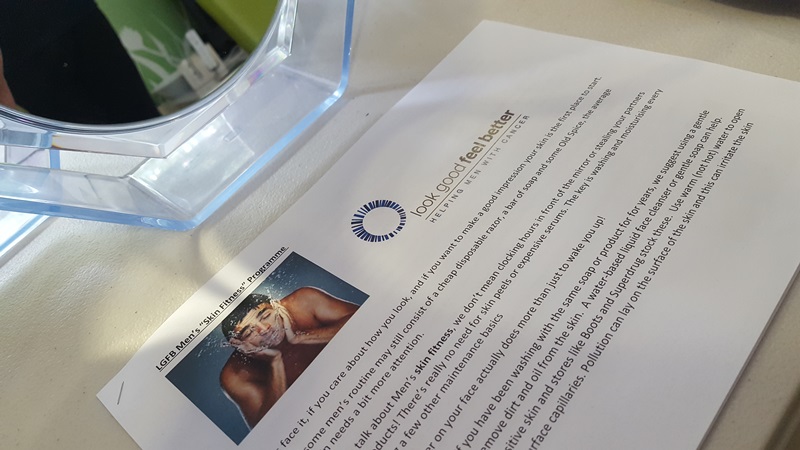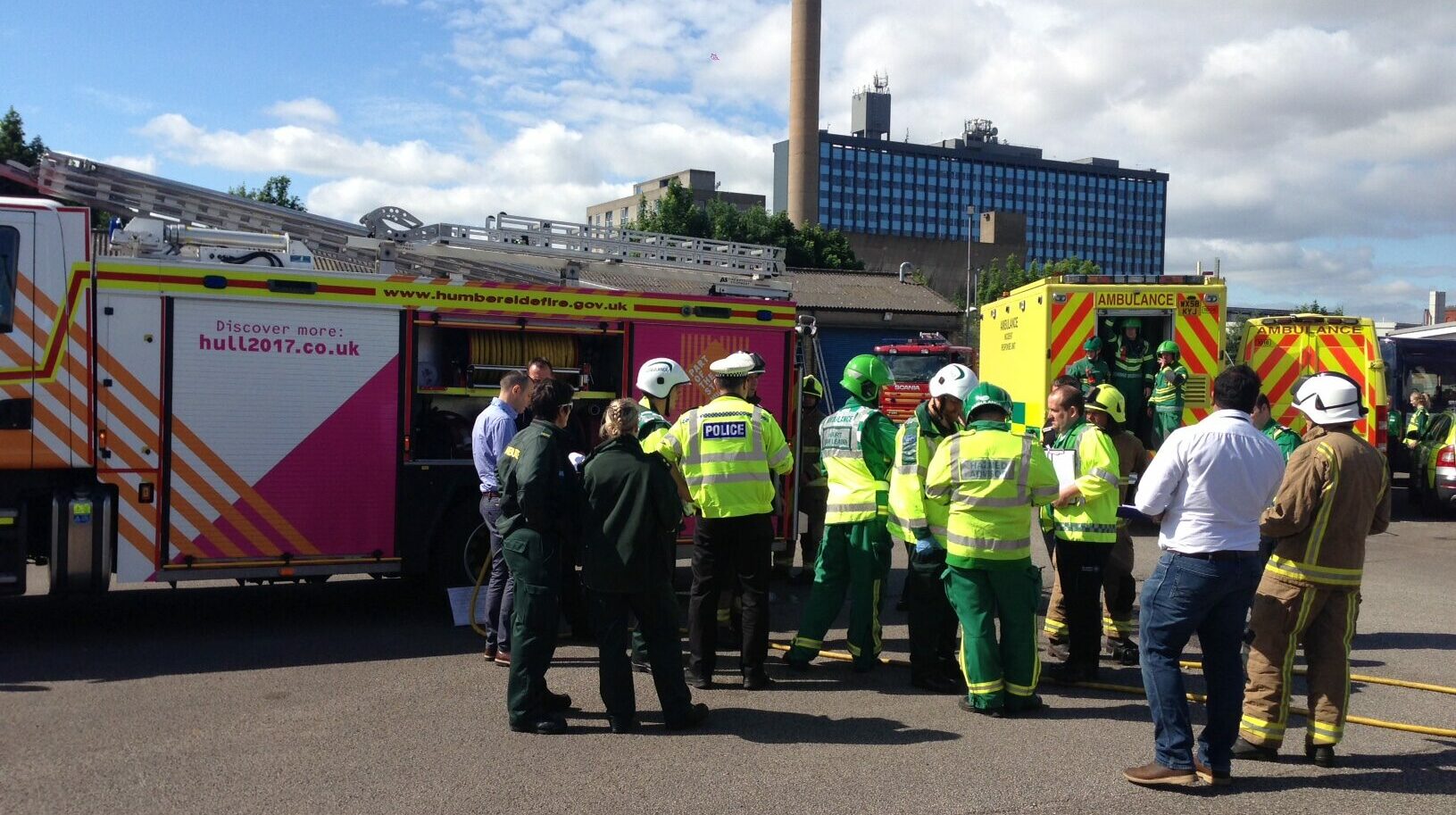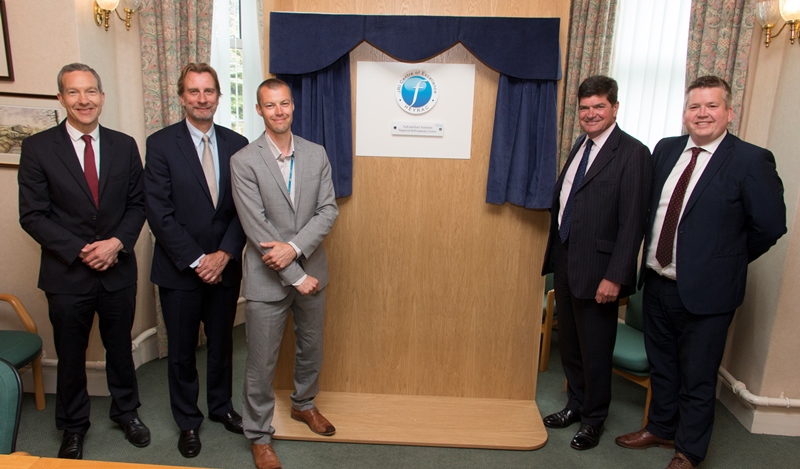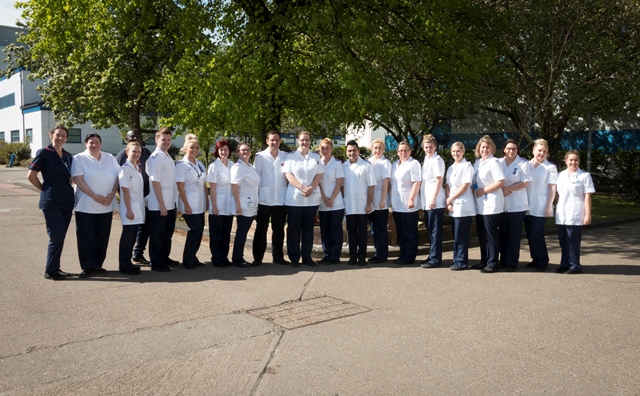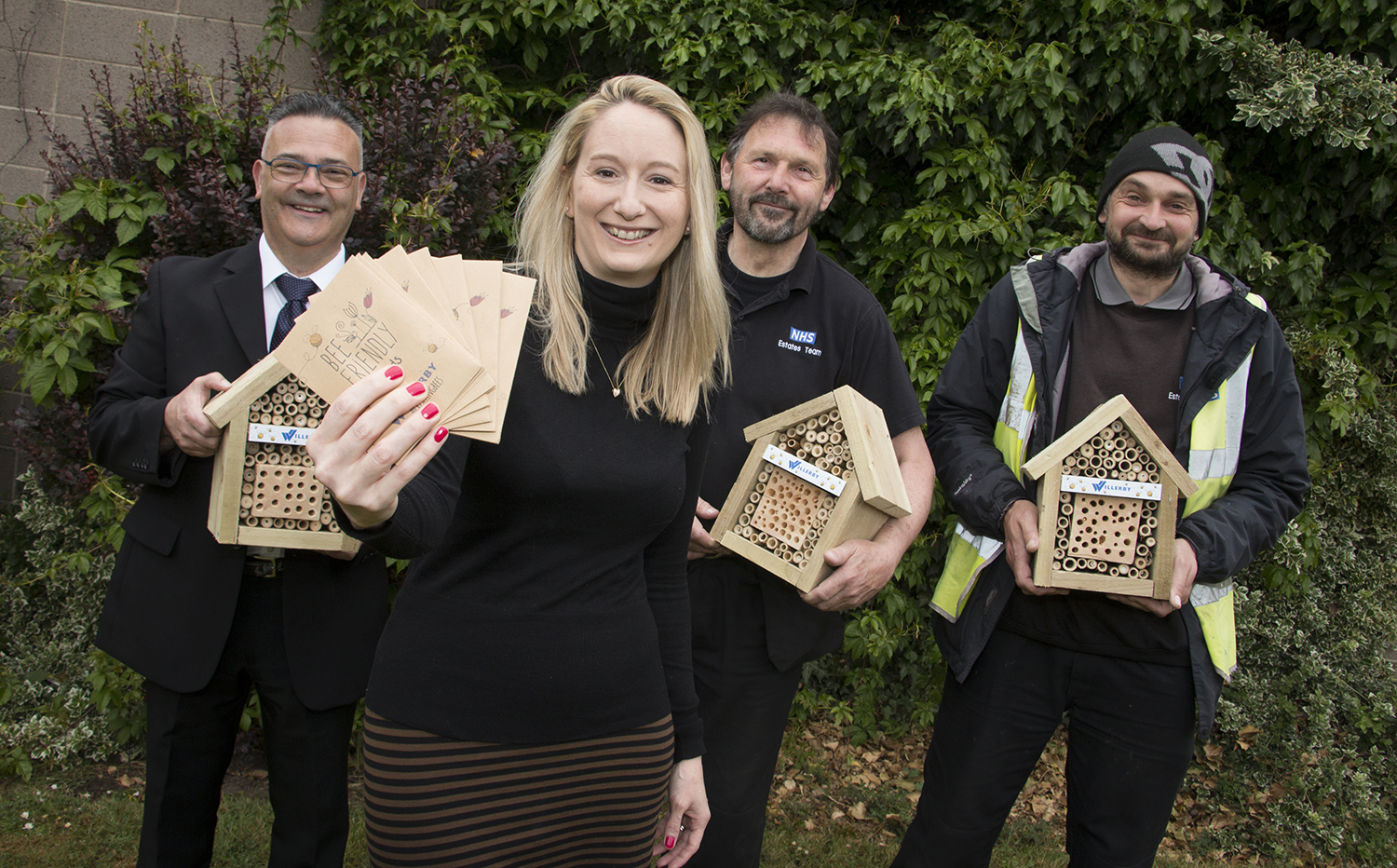Young men who are receiving or have completed cancer treatment took part in a regional first earlier today as the Look Good, Feel Better programme came to Cottingham.
National charity, Look Good, Feel Better, has been providing advice and support to women of all ages who are living with cancer for 23 years, concentrating specifically on the visible side effects of treatment. Until now, the charity has largely focused its efforts on women, but working with staff at the Teenage and Young Adult (TYA) Unit at Castle Hill Hospital, seven young men found themselves in line for VIP treatment today.
Ryan Nicholls, Teenage Cancer Trust Youth Coordinator based at Castle Hill Hospital in Cottingham, says:
“Being diagnosed with cancer at any age can be traumatic, but for teenagers and young people, for whom image is often everything, the side effects of treatment can be devastating. Losing your hair, your eyebrows or lashes, and changes to the skin can quickly dent a young person’s confidence.
“Whereas girls and young women generally feel happy to talk about things like hair and make up, men don’t always feel quite so comfortable, so the session held today was designed to give our male patients a non-judgemental space in which to work through some of those issues, pick up tips and ideas, and discover more about making themselves look and feel better.”
Sarah Addis from Look Good, Feel Better talked the young men through a range of different issues, from moisturising and sun protection to brow building and exfoliation.
Representatives of Skye & Craig salon, based within Total Fitness, Willerby, also gave up their time to visit the TYA Unit and offer advice on hair care, beard trimming and other aspects of male grooming.
Volunteer therapists offered massage to patients in a bid to help them de-stress and relax at what is undoubtedly a very difficult time, before the guys continued their chill-out with a game or two of pool.
“When someone starts treatment for cancer, they never know quite what the outcome or the effects of their treatment are going to be,” Ryan continues.
“We were keen to acknowledge that young men can become anxious and concerned about their appearance too. This ‘men only’ Look Good Feel Better session is only the third to be staged by the charity, and the first in the north of England, and the feedback given by our patients today will really help to determine whether this programme goes forward in the future and what it might look like.”
All young men attending the session received a goody bag full of premium brand cosmetics such as YSL, Clinique and Cartier to take away with them, courtesy of Look Good, Feel Better. If the event proves successful, this could mark the start of further sessions designed specifically with men in mind being rolled out nationally by the Look Good, Feel Better charity.

